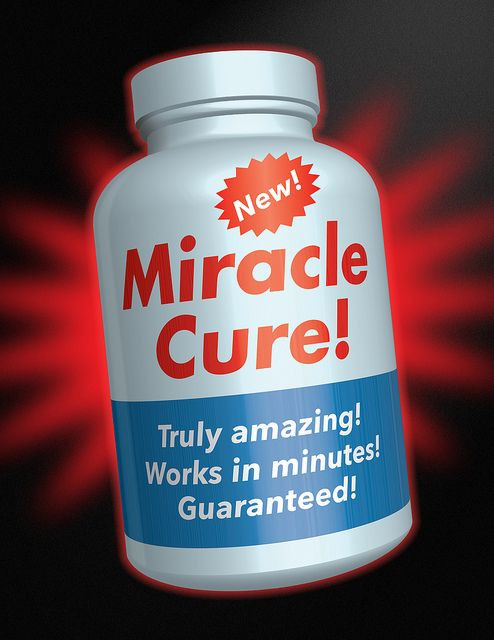“Miracle Cure” And Other Bogus Scams: How The FDA Protects You

We have all seen the advertisements and emails "Information doctors don't want you to know" and "Miracle Cure."
Marketing of "cure alls" goes back centuries and everyone is familiar with the snake oil salesmen, who even in the mid-19th century, were selling potions and elixirs aimed at curing everything from cancer to diabetes.
The Food and Drug Administration has released some tips for not falling prey to scams that promise cheap and quick ways to be cured of very serious medical conditions. While many of these products are not even safe or even effective, they bring in millions of dollars a year for scammers trying to take advantage of the public.
Drugs and medications on the market are tested thoroughly to determine if they are safe (Phase 1 clinical Trials) and effective (Phase 2-3 clinical trials). Pharmaceuticals and medications usually take more than 10 years to complete this process and have been studied rigorously. 2/3 of proposed medications never make it to market because they fail in clinical trials.
FDA offers some tip-offs to help you identify rip-offs:
- One product does it all. Be suspicious of products that claim to cure a wide range of diseases. A New York firm claimed its products marketed as dietary supplements could treat or cure senile dementia, brain atrophy, atherosclerosis, kidney dysfunction, gangrene, depression, osteoarthritis, dysuria, and lung, cervical and prostate cancer. In October 2012, at FDA's request, U.S. marshals seized these products.
- Personal testimonials. Success stories, such as, "It cured my diabetes" or "My tumors are gone," are easy to make up and are not a substitute for scientific evidence.
- Quick fixes. Few diseases or conditions can be treated quickly, even with legitimate products. Beware of language such as, "Lose 30 pounds in 30 days" or "eliminates skin cancer in days."
- "All natural." Some plants found in nature (such as poisonous mushrooms) can kill when consumed. Moreover, FDA has found numerous products promoted as "all natural" but that contain hidden and dangerously high doses of prescription drug ingredients or even untested active artificial ingredients.
- "Miracle cure." Alarms should go off when you see this claim or others like it such as, "new discovery," "scientific breakthrough" or "secret ingredient." If a real cure for a serious disease were discovered, it would be widely reported through the media and prescribed by health professionals-not buried in print ads, TV infomercials or on Internet sites.
- Conspiracy theories. Claims like "The pharmaceutical industry and the government are working together to hide information about a miracle cure" are always untrue and unfounded. These statements are used to distract consumers from the obvious, common-sense questions about the so-called miracle cure.
If tempted by these products, remember that approved medications go through tough screening and testing before and while they are on the market. Fake products have no certification that what you actually get is even what was advertised.
People who are most vulnerable to these types of scams are the elderly and people who feel that approved mediactions are financially out of their reach.
The FDA announcement can be found here.



























